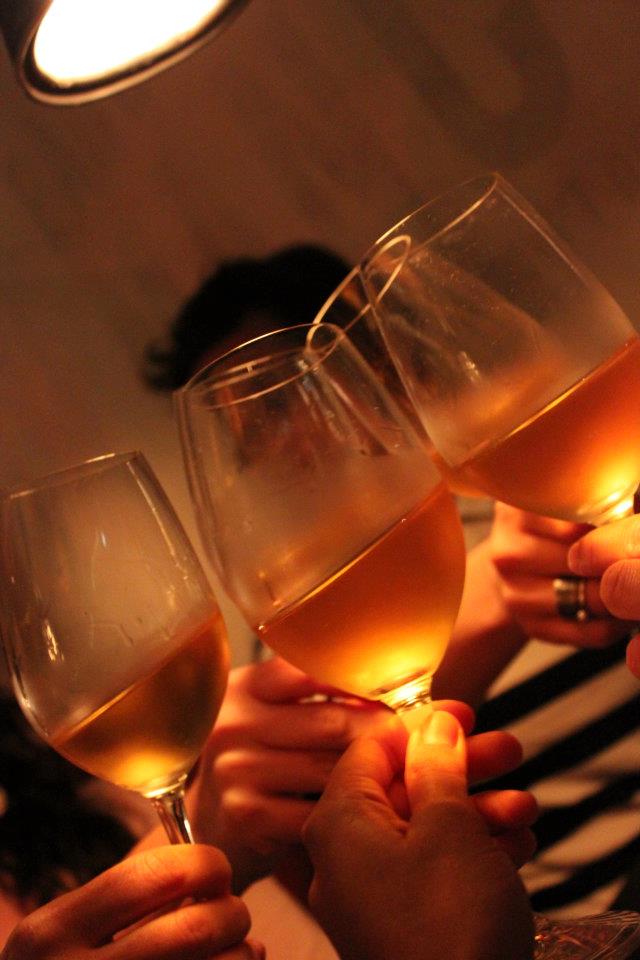Moderation in all things, especially moderation.
If you give up drink, you don’t live longer. It just seems longer.
Studies and counter studies make various scientific claims for the health benefits and otherwise of wine. Red wine particularly has come under scientific scrutiny as resveratrol has been heralded as a kind of magic health bullet, its dietary intake being associated with benefits for cardiovascular health; hypertension; gut health and type 2 diabetes. Take a little wine for thy stomach, as the bible advises.
The recipe for a good long life would seem therefore to be a moderate quantity of red wine combined with a healthy life style and a balanced diet. In terms of the wine part, certain red varieties are claimed to have particular medicinal properties: Tannat; Tempranillo; Fer Servadou; Saperavi; Malbec & Teran to name but a few – being high in polyphenolic compounds (found in skins, stems and pips) – and feature in studies endeavouring to account for why particular populations/groups have higher life expectancy or better health outcomes. None of the surmises from these studies may be regarded as definitive or even provable, as the substances found in wine are only a small part of a much larger equation. On the other hand, the consumption of these wines often fits into an overall healthy behavioural rhythm.
The recipe for a good long life would seem therefore to be a moderate quantity of red wine combined with a healthy life style and a balanced diet.
If you credit red wine with health-giving properties then giving it up for a month seems especially odd. But I guess that is not really the point. There are two ways of interpreting this gesture. One is that it is a classic partial New Year’s resolution, a kind of 31-days of virtue signalling that one is not dependent on alcohol and has the fortitude to go without something that one likes. It is also usually incorporated into a new health regimen, that symbolic jettisoning of an old persona and booting up a new one. It also might be reasonably argued that after the extra, possibly excessive booze-intake of the holiday period, that it’s not such a bad idea to give one’s fatigued palate an opportunity to rest.
Such a negating resolution, however, suggests that wine is the vice itself, a boozy demon that needs to be resisted. Yet wine might also be regarded as a form of food: nourishing, digestible – even, as we have mentioned, healthy. If we lack the confidence to manage our personal consumption, that is surely a more an illustration about our relationship with alcohol in general. If our consumption is woven into a balanced lifestyle, then why would we need to give something up?
That balance in questions, naturally, involves us knowing our limits and understanding that alcohol can transform and amplify our moods. If one is excited and happy, then alcohol can often be a positive intensifier. Conversely, if one is sad or depressed, then that feeling is only further exacerbated by the intake of booze.
If we lack the confidence to manage our personal consumption, that is surely a more an illustration about our relationship with alcohol in general. If our consumption is woven into a balanced lifestyle, then why would we need to give something up?
Opening a bottle of wine can also signify the end of a particular stage of the day – work – and the beginning of “me-time”. It is mentally important to break up one’s routine, to shift gear and escape from one’s work persona. A glass or two of wine helps one to relax, stimulates conversation and camaraderie, all of which are positive and health-giving outcomes.
This may sound quite obvious, although I am drinking the wine, I also like to taste it properly. Not in the hyper-analytic sense, but to distinguish it from other alcoholic drinks, and indeed from alcohol full stop. When I pull the cork I am not therefore thinking “I need to drink this quickly to get drunk”, more that “I hope it tastes good so that I can savour and enjoy it”. At the very moment when drinking ceases to confer pleasure, then I stop. I can’t get past the first mouthful with wines I don’t like.
Consider also the restaurants and independent retailers, who depend on business to pay their December bills and will have to wait until the collective ritual self-cleansing runs its course.
In conclusion, I would urge those who normally drink wine not to stop doing so for this artificial period of one calendar month. Drink less, by all means, drink better and with greater appreciation (of course – and that would be an interesting resolution), but don’t go all-in for the big detox. Otherwise, we become stuck in a strange cycle of behaviour, a semi-abusive relationship with alcohol, wherein we drink to get completely drunk, pay the price the next day, and then don the metaphorical sackcloth to atone for one’s excesses. Consider also the restaurants and independent retailers, who depend on business to pay their December bills and will have to wait until the collective ritual self-cleansing runs its course. Is it not better to greet a new year with open arms and a wide smile rather than a zipped puritanical lip and a shiny new gym membership? As someone once said: “This year, let’s resolve to make better bad decisions.”
Seize the day and the corkscrew – wisely. Drink moderately moderately. Allow the quality of unstrained wine to droppeth as the gentle rain from heaven into the glass beneath.
Seize every day thus.


